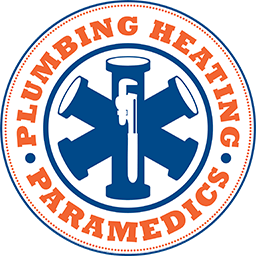
Heat pump systems are a popular choice for energy-efficient heating and cooling. By transferring heat instead of generating it, these systems use less energy, which can result in significant savings on your utility bills. Understanding how heat pump systems work and why they are efficient can help you make informed decisions about your HVAC needs.
How Heat Pumps Work: Basics and Mechanics
Heat pump systems operate on a simple yet effective principle: they move heat from one place to another rather than generating heat directly. This is achieved through a refrigeration cycle that involves a refrigerant, a compressor, and two coils — an evaporator and a condenser.
During heating mode, the evaporator coil absorbs heat from the outside air. Even when it’s cold outside, there is still some heat energy available that can be extracted. The refrigerant inside the evaporator coil captures this heat and becomes a high-temperature gas. The compressor then pumps this gas into the condenser coil inside your home, releasing the captured heat into the indoor space.
In cooling mode, the process is reversed. The heat pump extracts heat from inside the home and expels it outside. The evaporator coil inside your home absorbs the indoor heat and the refrigerant transfers it to the condenser coil outside. This results in cool, comfortable indoor air.
The ability to switch between heating and cooling makes heat pumps versatile and efficient. Understanding these basic mechanics helps you appreciate how a heat pump installation can provide year-round comfort and energy savings.
Energy Efficiency of Heat Pump Systems
Heat pump systems are renowned for their energy efficiency. Unlike traditional heating systems that burn fuel to generate heat, heat pumps transfer existing heat. This process uses significantly less energy, leading to lower utility bills and a reduced carbon footprint.
Ductless mini-split systems offer enhanced energy efficiency by allowing for zoned heating and cooling. These systems consist of an outdoor unit connected to one or more indoor units. Each indoor unit can be controlled separately, so you only heat or cool the rooms you’re using. This targeted approach avoids the energy waste associated with conditioning unoccupied spaces.
Moreover, because heat pumps move heat instead of generating it, they can be more efficient even in extreme temperatures. Advanced models can extract heat from very cold outdoor air, making them suitable for varied climates.
To maximize energy efficiency, professional heat pump installation is crucial. Our technicians ensure that the system is correctly sized and installed, preventing common issues such as refrigerant leaks or poor air distribution. Proper installation and regular HVAC maintenance are essential for sustaining the high efficiency of heat pump systems over their lifespan.
By choosing a heat pump system, you invest in an energy-efficient solution that provides reliable comfort while reducing energy consumption. Whether it’s a traditional heat pump or a ductless mini split system, the benefits of improved efficiency are clear.
Comparing Ductless Mini Split Systems and Traditional Heat Pumps
When deciding between ductless mini-split systems and traditional heat pumps, it’s important to consider their differences and advantages. Both systems offer energy-efficient solutions, but they have unique features that may suit different needs.
Ductless mini-split systems are ideal for homes without existing ductwork. These systems consist of an outdoor unit connected to one or more indoor units placed in different rooms. One of their key benefits is zone control, allowing you to adjust the temperature in specific rooms independently. This targeted approach can lead to significant energy savings as you avoid heating or cooling unoccupied spaces.
Traditional heat pumps, on the other hand, are integrated into your existing ductwork. They are excellent for providing consistent temperature control throughout the entire home. If you already have a central HVAC system, installing a traditional heat pump can be straightforward. These systems are effective for whole-house heating and cooling, ensuring uniform comfort.
Our professionals can help you decide which type of system is best for your home. Factors like the layout of your house, your specific comfort needs, and your budget will influence this decision. By understanding the strengths of each system, you can make a choice that enhances both comfort and energy efficiency.
The Role of Proper Maintenance in Energy Savings
Proper maintenance is essential for keeping your heat pump system running efficiently. Regular upkeep helps prevent issues that can reduce energy efficiency and lead to higher utility bills. Following a structured maintenance plan ensures that your system operates at peak performance.
Firstly, it is crucial to clean or replace air filters regularly. Dirty filters restrict airflow, forcing the system to work harder and consume more energy. Our technicians can check your filters during routine HVAC maintenance visits and replace them as needed.
Another key step is checking refrigerant levels. Low refrigerant can cause the system to lose efficiency and fail to heat or cool your home adequately. Our professionals can assess and adjust refrigerant levels during scheduled maintenance, ensuring optimal performance.
It’s also important to inspect and clean both the indoor and outdoor units. Dirt and debris can accumulate on the coils, reducing their ability to transfer heat effectively. Keeping these components clean helps maintain efficient operation.
Lastly, regular inspections can identify and address minor issues before they become major problems. Components such as the compressor, fan, and electrical connections need to be examined regularly. Timely repairs can extend the lifespan of your heat pump and sustain its energy-saving capabilities.
By investing in proper maintenance, you can ensure your heat pump system remains a reliable and efficient source of comfort for your home.
Conclusion
Understanding how heat pump systems save energy highlights their role in providing efficient, reliable heating and cooling. From the basic mechanics of transferring heat to the comparative benefits of ductless mini splits and traditional heat pumps, these systems offer versatile solutions for various needs. Proper maintenance is essential to sustain the energy efficiency and performance of your heat pump system, ensuring long-term savings and comfort.
Whether you’re considering a new heat pump installation or looking to maintain your existing system, our team at Plumbing and Heating Paramedics is here to help. Our professionals are dedicated to ensuring that your home remains comfortable and energy-efficient year-round.
Contact us today to schedule an appointment or learn more about our HVAC services. Let us help you achieve optimal comfort with an energy-efficient heat pump system in Chestermere, AB, tailored to your needs.
Call us at (403) 452-2911 or Book Now an appointment.
When to Call a 24 Hour Plumber
Plumbing problems can strike at any time, often when you least expect them. A leaking pipe or a malfunctioning water heater can quickly turn into a full-blown emergency that needs immediate attention. Knowing when to [...]
Effective Drain Cleaning Techniques
Maintaining clean and clear drains is vital for the smooth operation of your plumbing system. Clogged or slow drains can lead to a host of issues, including unpleasant odours, slow water drainage, and even serious [...]
How Our Emergency Plumbers Handle Urgent Repairs
Plumbing emergencies can occur without warning, causing significant inconvenience and potential damage to your home. From burst pipes to sudden leaks, these issues require prompt and professional attention. Our emergency plumbers are ready to respond [...]






